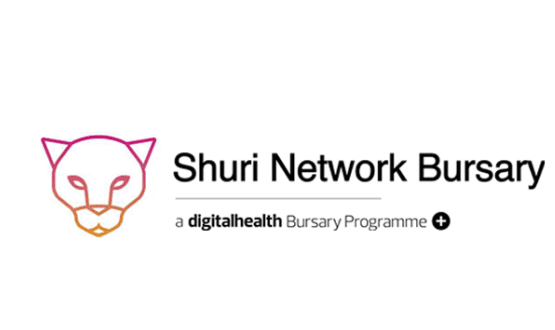NHSX removes job advert amid criticism it excludes BAME applicants
- 24 October 2019

NHSX has removed a job advert for a senior IT role after facing criticism on social media for excluding black and minority ethnic applicants in the job specifications.
The chief nursing information officer (CNIO) role was advertised on 15 October but taken down two days later on 17 October, after some pointed out on Twitter that the advert excluded black and minority ethnic (BAME) individuals.
The wording in question stated applicants must have “proven and significant experience at director level”, which would automatically rule out many BAME applicants.
That would narrow the field to “less than eight BME nurses in the NHS”, Owen Chinembiri, senior manager for the NHS workforce race equality standards team, claimed.
Sam Shah, director of digital development, tweeted that NHS England had data on the number of BAME personnel in top-level jobs and would have “known the likely outcome”, adding it “makes me wonder what’s going on here”.
You’re probably right. Given that @NHSEngland will also have the data on this and would have also known this is the likely outcome, does now make me wonder what’s going on here?
— Sam Shah (@healthyopinion) October 16, 2019
However, none of us can magic up BAME CNIOs out of nowhere. This highlights the urgent need for NHS bodies to prioritise building a more diverse leadership pool and invest in initiatives like @NetworkShuri to sustain and hardwire this so this becomes our underpinning principle.
— TheShuriNetwork (@NetworkShuri) October 18, 2019
NHSX tweeted on 17 October that the application process had been “paused” in order for the job criteria to be reviewed to “ensure they fit with NHSX values”.
Speaking to Digital Health News, Shah praised NHSX for taking down the job to re-examine the specifications.
“This is a positive move on the part of NHSX and takes the NHS in the right direction, allowing time to reconsider the criteria for role,” he said.
“However, the NHS needs to learn from this and change the underlying culture. I very much look forward to working with colleagues across the NHS to improve access to roles across all groups and supporting social mobility.”
Thanks for your feedback on the CNIO role.
We’ve heard your concerns and we're looking again at the criteria to ensure they fit with NHSX values.
We’ve paused the application process for now but it will reopen very soon. Applications to date have been saved and are still valid.
— Transforming health and care (@NHSTransform) October 17, 2019
Also speaking on the subject, Dr Shera Chok, co-founder of the Shuri Network, said many top level jobs across the NHS aren’t inclusive and called for change across the whole system.
“It’s not just NHSX, for some reason the light has been shined on this particular job, but if you think of a trust looking for a chief executive, chair or medical director or any job on that level it’s going to be pretty exclusive rather than inclusive,” she told Digital Health News.
“This is widespread across the whole NHS. What we need to do, collectively, is to grow the pool of BAME candidates in addition to looking at the job descriptions.
“This will take time but we need NHS organisations, including NHSE and NHSI, to commit to taking action to develop a more diverse leadership pool. We can’t magic BAME CNIOs or CIOs out of nowhere, but we must start identifying and developing future leaders.
“I’m really happy that NHSX has asked us to provide them with informal advice and to work with them on this, I think that is a huge step forward.
“We would be really delighted if other organisations did the same thing.”
An NHSX spokesperson confirmed the department was working with the re-evaluating the “essential criteria” of the advert to “desirable criteria”.
“NHSX is committed to recruiting a team that is diverse in expertise, experience, background and reflective of the people it serves,” they said.
“Recruitment to this important new role has been briefly paused whilst we work closely with the Shuri Network to amend the job description and ensure we can attract as wide a range of candidates as possible.”
Thank you – this matters. We missed it (essential v desirable) in the rush to get the job ad out before I went away. We’re grateful to @NetworkShuri and colleagues for helping at v short notice. NHSX is committed to being inclusive of all talents.
— Simon Eccles (@NHSCCIO) October 18, 2019
As a BAME person with more than five years’ experience working at board-level in the NHS, Shah knows the difficulties people of colour face in the system.
“I recognise the difficulties facing BAME people in progressing to senior roles. Quite often they have not had the exposure or gained the required senior experience that even makes them eligible, therefore it’s difficult for them to get to senior level,” he said.
“Diversity is important as it improves productivity and supports innovation; inclusivity contributes to improved outcomes for patients and staff.
“A number of BAME staff from across the NHS and broader civil service have described to me their concerns about not belonging to the right club and the barriers in place to progression.”
[themify_box icon=”info” color=”gray”]
Equality and diversity stats at a glance:
According to the latest NHS Workforce Statistics, published by NHS Digital, there are:
- 24,863 senior managers in hospitals and the community health service
- Of those, just 4,040 (16%) are of a BAME background
- There are 20,823 white senior managers
Of scientific, therapeutic and technical staff, there are:
- 231,623 (80.24%) white staff
- 63,204 (19.76%) BAME staff
In NHS support organisations and central bodies, there are:
- 345 (82.73%) white “very senior managers”
- 72 (17.27%) BAME “very senior managers”
Last year’s NHS Digital workforce diversity data revealed just 12% of NHS Digital’s workforce were from black, Asian and minority ethnic (BAME) backgrounds.
And just 21% of those applying for jobs in 2017/18 were from a BAME background – down from 38.5% the previous year.
[/themify_box]
Why is diversity in the NHS vital?
Last month’s Digital Health News podcast with the Shuri Network explores the need for diversity in digital health, why it’s taken so long to become a focal point and what needs to be done to encourage more women to take up IT roles in the NHS. You can listen to the podcast here.




